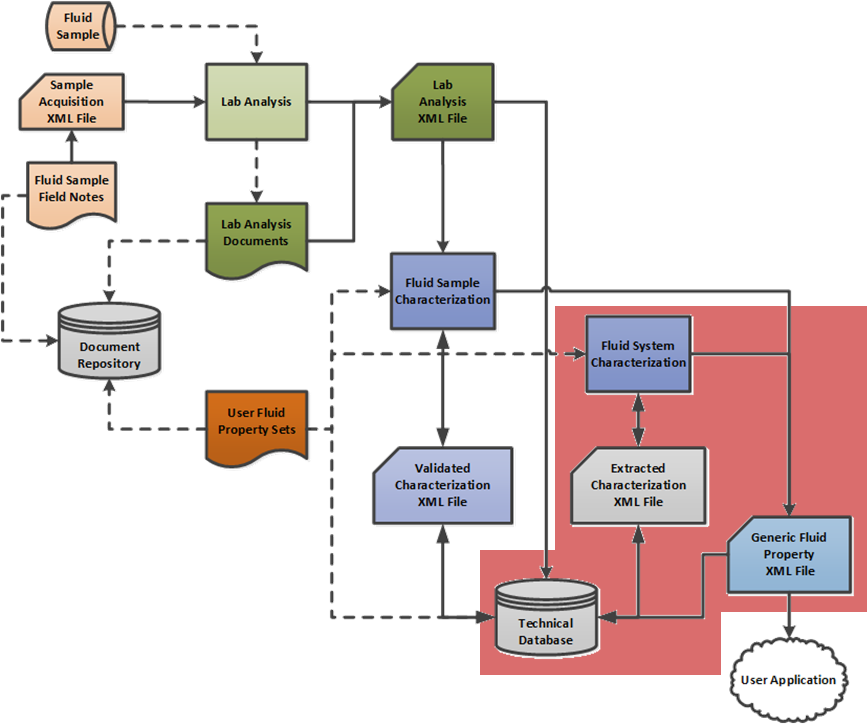9.4 Use Case 4: Fluid System Characterization
| Topic Version | 1 | Published | 12/09/2016 | |
| For Standard | PRODML v2.0 | |||
Fluid System characterization (Figure 9.4-1) is a process with a goal of building a numerical fluid model for data-specific operating scenarios and fluid systems and providing a fluid description to be used in engineering models; data from multiple samples may be used for conditions not investigated in the laboratory.

Many disciplines and their respective software tools need a fluid system description that adequately represents how the fluid is going to behave at different pressure and temperatures; for example: reservoir simulators, lift packages, process simulators, and others targeting various disciplines such as reservoir engineering, production and well engineering, facilities design, and operations. In the context of the current effort, fluid system characterization refers to developing and characterizing fluid components within the fluid system for the purpose of simultaneously evaluating the validity and applicability of earlier fluid sample analyses and developing a mathematical model to represent holistic behavior of the reservoir fluid system.
In the fluid characterization data object, references may be made to the fluid components defined for the fluid system. This includes the use of specific oil, water and gas components, standard components used in sample compositional analysis, or new pseudo-components intended for use in reservoir or process simulators. The additional properties and characteristics (such as molecular weight, boiling point, etc.) for each fluid component used are added as data in the fluid characterization data object.